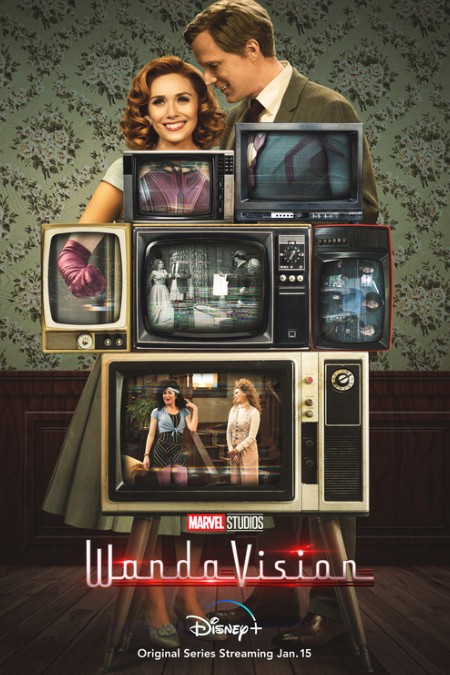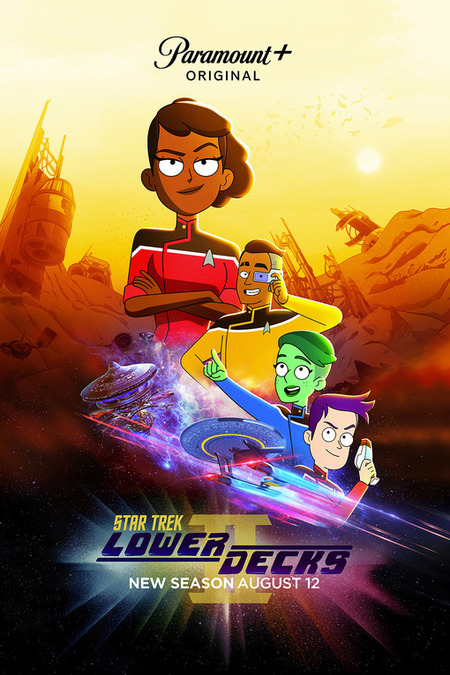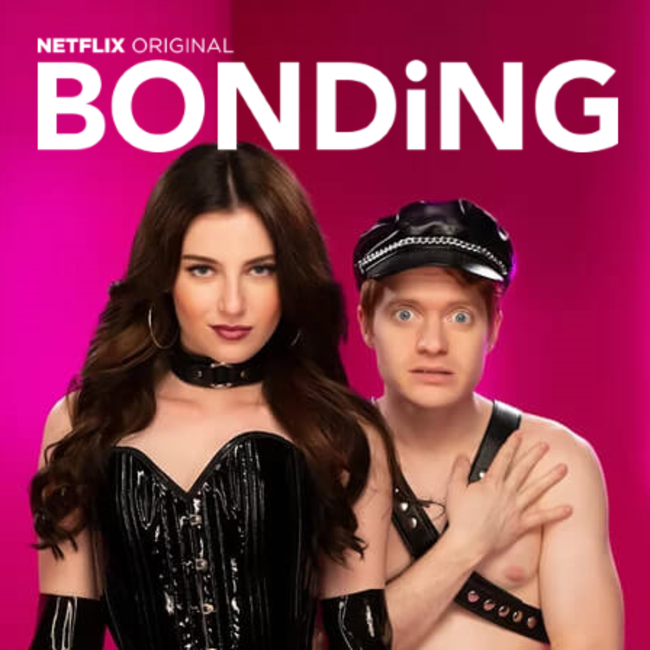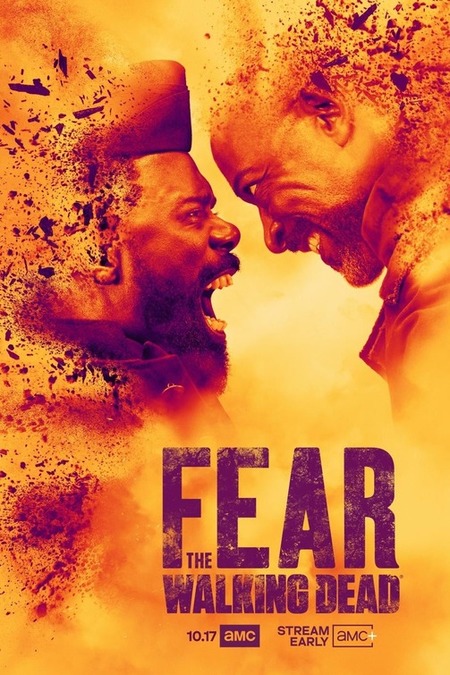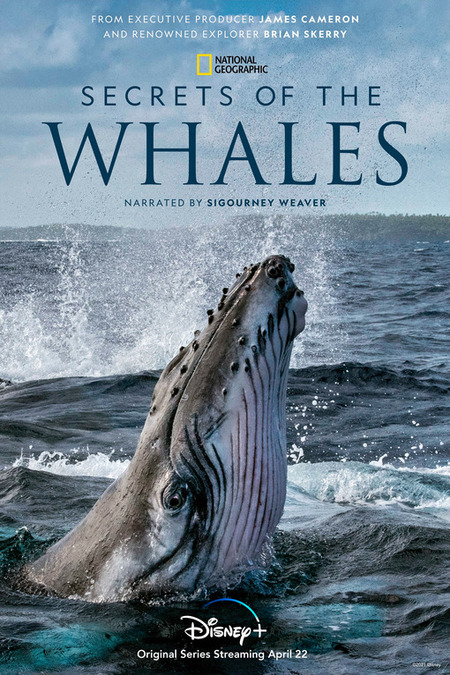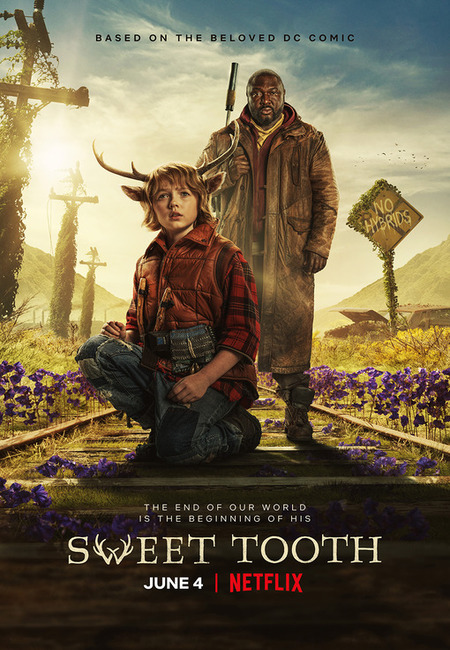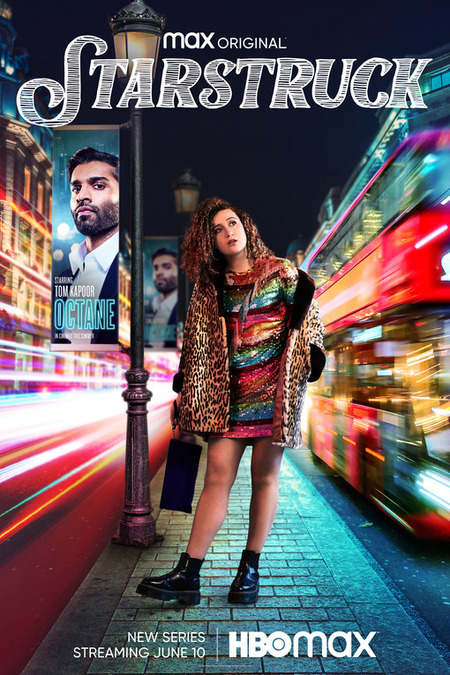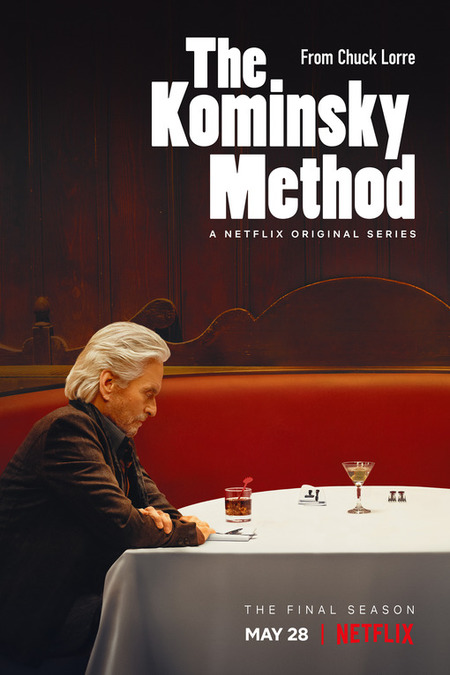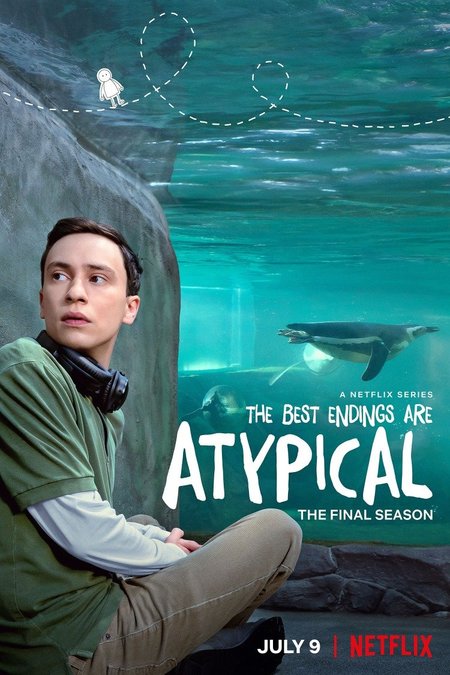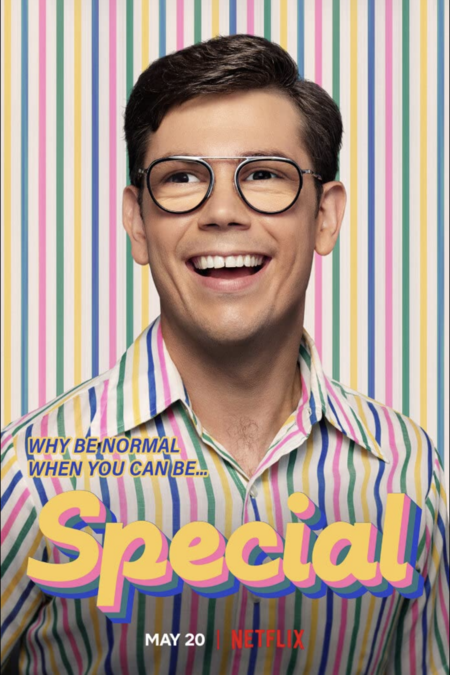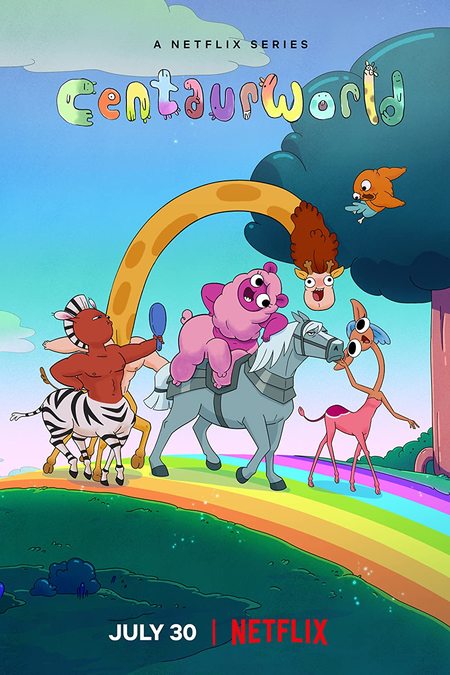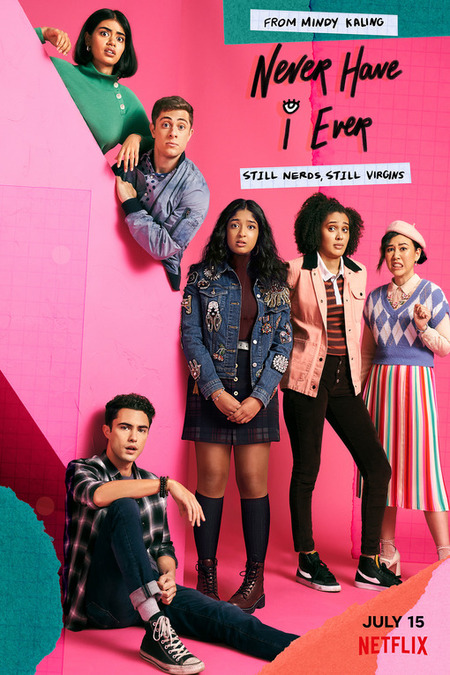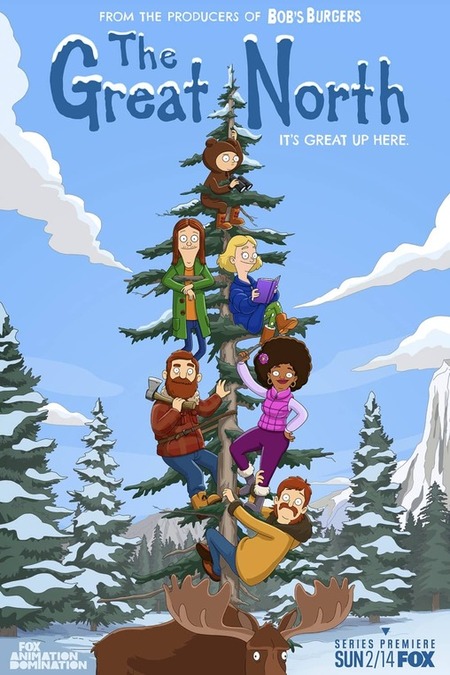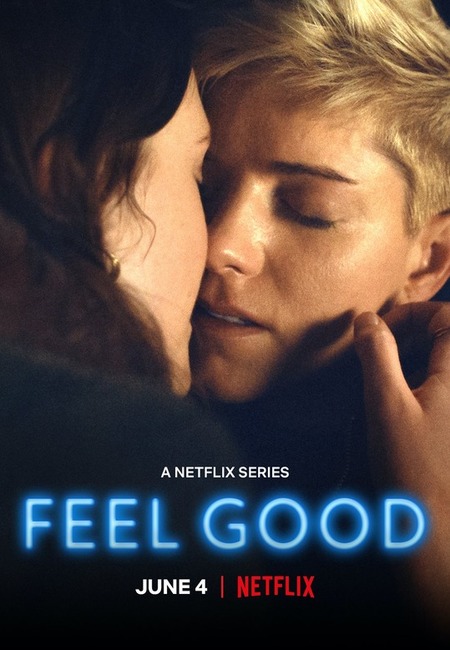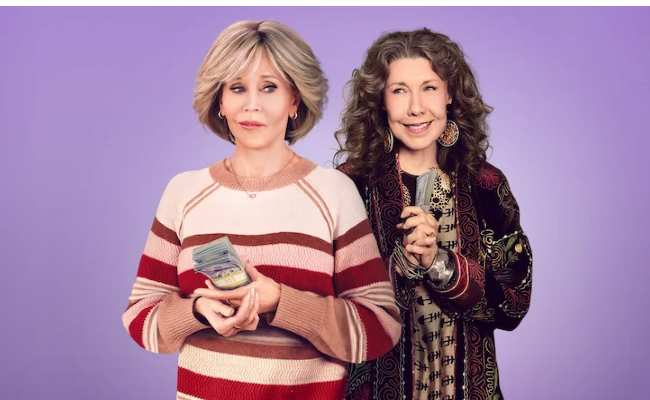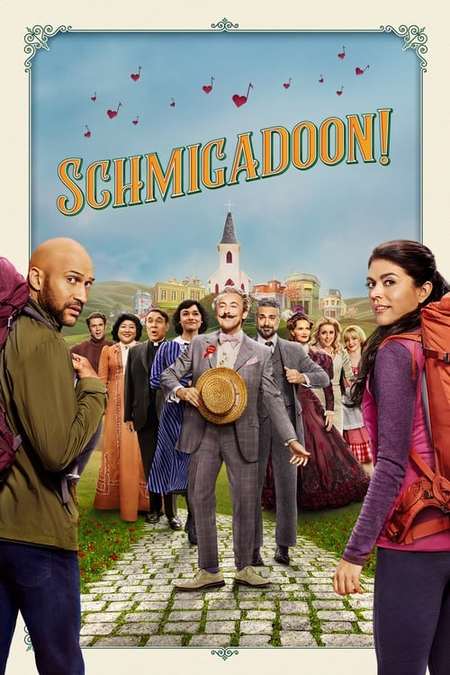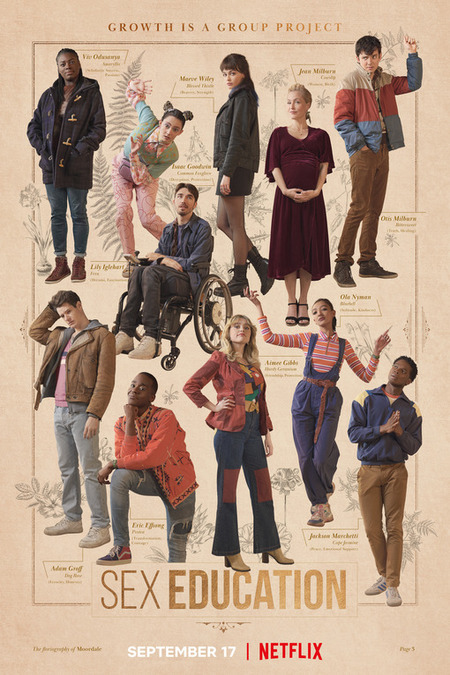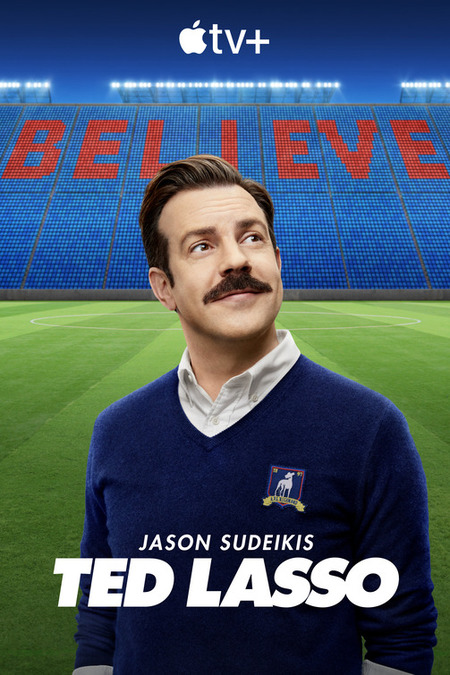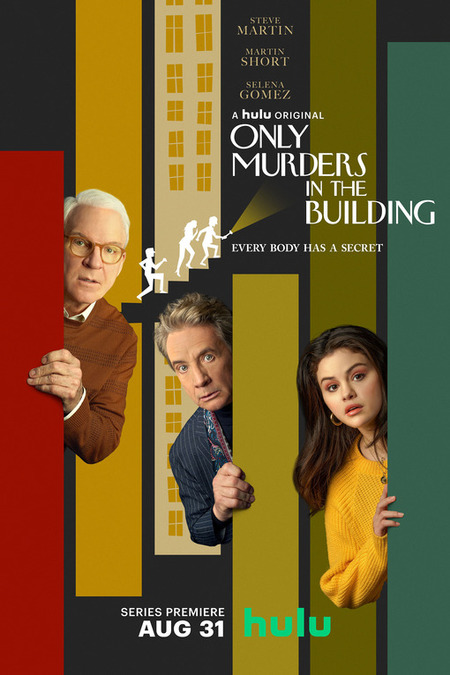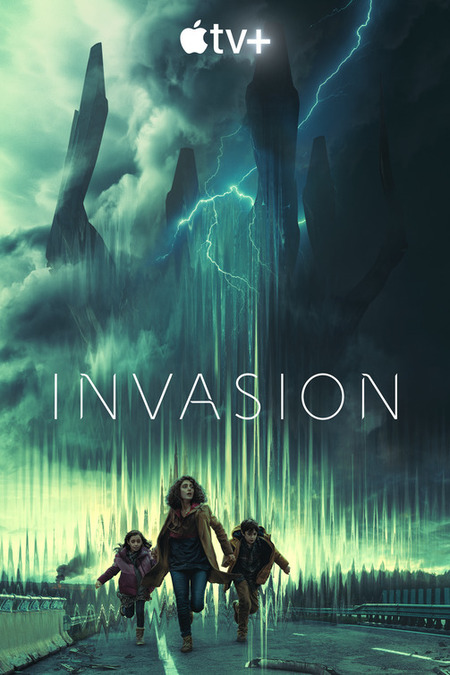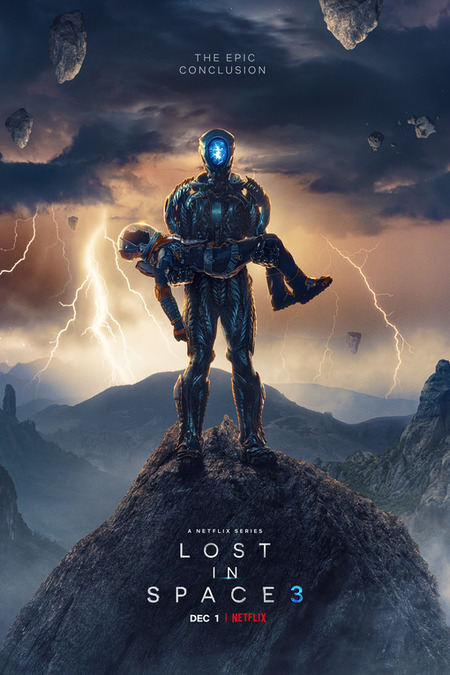2021 has been a very long year.
Now, those of you of a more pedantic bent might casually respond that it had 365 days, just like any other year (except those delightful leap years which the Gregorian calendar throws in every four years just to keep us on our timekeeping toes) to which I would say – well, type really but now who’s being pedantic, huh? – that while that is true, a just over four month lockdown might time seem a tad elastic and prone to extending and not contracting.
So, it is that we’ve reached the end of lockdown not even sure what time itself is.
Thankfully, throughout the endless days and nights of lockdown, where my only outing was a morning hour of exercise out in the thrilling streets of my local neighbourhood, I had all manner of streaming services at my disposal including Netflix, Prime Video, Binge (an Aussie-only one), Disney+ and Apple TV+ and they kept the window open on the world when the door to anything approaching had quite definitively and comprehensively shut.
I ended up watching a lot of genre shows which are far and away my favourite but also dipped my toe into animation and documentaries, and even the occasional reality TV shows such as Nailed It! and Escape to the Country, which has tapped into a love of rural English househunting I didn’t even know I had.
The big trend this year has been my understandable drift away from anything too darkly dramatic or emotionally intense; while I know the world flocked to Midnight Mass and Squid Game, among others, I have tended to favour anything which doesn’t aggravate my pandemic lockdown-amplified anxiety and depression.
My hope is that 2022 sees things settle down a little bit or, preferably a lot, and I can once again also watch some more meatier fare because if anything can be said about me, it’s that I am as eclectic as they come and it’ll be great to add some more dramatic back into the mix.
For now, though, here are my streaming stars of 2021 aka The Shows That Kept Me Sane and happy during an awful, terrible, not very much fun year …
The Marvelous Mrs. Maisel (S2)
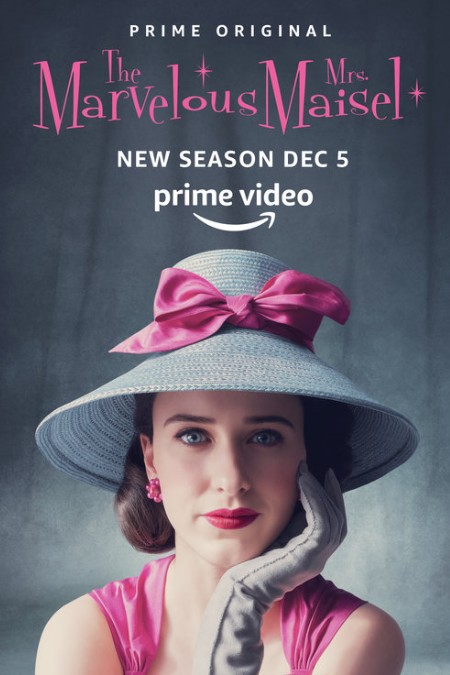
It is one of those shows that feel like the result of a great deal of fun being had by producers, cast and crew, and while there is no doubt creator Amy Sherman-Palladino and her team work ridiculously hard to keep The Marvelous Mrs. Maisel afloat with its customary mix of grounded humanity and fantastically quirky, almost surreal at times, bonhomie (the episodes where the Maisels and presumably all of New York’s middle class Jewish population is a slice of larger-than-life fun on a grand scale), the effect is of effortless fun with tender heart and a thinking mind.
The truth of the matter is that the most simply pleasurable of things are always fiendishly complex and the result of much behind-the-scenes work, and The Marvelous Mrs. Maisel is no different, delivering searing social critique and rudely confronting life shocks up in a mélange of vibrant humour, smartly-cut and sassily delivered dialogues by actors at the top of their game, and a world where anything might be possible but its realisation is most certainly not.
What is supremely and thrillingly exciting about WandaVision, which just released the first two episodes via Disney Plus, with weekly episodes to follow every Friday thereafter until the initial slate of nine episodes is completed on 5 March, is how fantastically out-of-the-box it is in ways that will have you whooping and hollering with delight. (Not a problem in the comfort and privacy of your own home but a whole other matter in a public park where this reviewer watched the episodes.)
This is a series that have well and truly broken the mould, televisual and cinematic, offering a show that is breathtakingly original, even as it samples liberally from television shows of the past for look, feel and vibe, and which balances adroitly and with devastatingly good effect a tension between saccharine, sitcom sweet and darkly, threateningly portentous.
Read my full reviews of episodes 1 & 2, episodes 3 & 4, episodes 5 & 6, episode 7 and episodes 9 & 10.
Star Trek: Lower Decks (S1 & 2)
So, you could be forgiven for wondering if a show like Star Trek: Lower Decks, which is both lavishly, colourfully animated, and thigh-slappingly silly and hilarious, might lower the seriously hopeful tone [of the franchise] a little … or a lot.
The thing is though that it doesn’t.
Sure, it is so ridiculously funny at times, replete with visual gags – think D’Vana Tendi’s (Noël Wells) genetically-engineered freak of a dog and it’s transformation into a rolling cube as it wanders past her and Brad Boimler (Jack Quaid) – and witty quips, but that doesn’t mean it becomes some sort of pointless joke for joke’s sake.
Read my full reviews of season 1 and season 2 (episodes 1-5) and season 2 (episodes 6-10)
Bonding (S2)
Figuring out who you are in life is rarely as clear cut and straightforward as we’d like to be.
While we dream of moving majestically forward, held head high and a fist full of highly-achieveable dreams in our hands, friends and family happily by our sides and bluebirds, because of course they must be bluebirds (what with their predilection for happiness), the cold, hard reality is can feel more akin to running a barbed wire gauntlet barefoot with no one around you for miles.
The chasm between hope & expectation, and the unpalatable truth of life, is a wide and painful ones at times and no two people know that better than Peter “Pete” Devin (Brendan Scannell) and Tiffany “Tiff” Chester (Zoe Levin) from Netflix show Bonding, two friends from high school days in conservative Georgia who, after an absence of some years, have found themselves back in each other’s lives in New York City.
It all sounds very warm and friendship idyllic, doesn’t it?
True it actually sometimes is, but in series two of this short-form series – it’s described as dark comedy which captures its mix of dramatic humour nicely – there are a great many times when they’re not the bosom buddies they obviously wish they were.
Read my full review of season 2.
Fear the Walking Dead (S6 & 7a)
From its first episodes, Fear stuck resolutely to portraying what such a scenario would do to ordinary people and did it well, offering up a bleakly human response to the apocalypse than The Walking Dead never quite managed, despite its best overwrought efforts to do so.
And yet, now, it looks to have finally jettisoned much of that in favour of melodramatically, bloodily theatrical war which is great for culling an under-utilised ensemble cast but not so good for affecting, nuanced storytelling.
Again, perhaps we will be surprised and the arc will play out as a bruising character study and not comic book video game violence sprung to life (or death, as the case may be) but the franchise hasn’t displayed that kind of finesse to date when such storylines have been considered and given the desperation of both Victor, who became even more seriously unhinged in “The Portrait” (not helped by Morgan, played by Lennie James, do his own bit of vengeance enacting), and Alicia who has little to lose, expect the obvious and not the thoughtful to play out.
To be fair, Fear has not yet reached the point where it should be put out of its misery, with some compelling characters still in play, but it is getting close, an end which will be hastened by the current pending storyline for the second half of season seven, which if AMC are sensible, will be the show’s last, lest it drift into the pointless narratives that eventually doomed it parent show.
Of all the various incarnations in The Walking Dead universe, Fear has always been this reviewer’s favourite because it dared to favour humanity and character over mindless thuggish violence and you can only hope that somewhere between now and later, it will pull out of its death dive and go back to the approach that make it such an engrossingly human show to watch in the first place. (Taken from review of the last two episodes of season 7a)
Search Fear the Walking Dead on this site for reviews of season 6 and 7 (split into fortnightly reviews of two episodes each and usually paired with The Walking Dead: World Beyond).
One thing that emerges quite strongly in Secrets of the Whales is how much these various species interact interact beyond what is practically necessary.
If they were simply eating and breeding machines, then you wouldn’t see much more than prosaic robotic fulfilment of instinctual urges but what research has shown is that a great deal of time and effort is employed, whether its undertaking an arduous migration or coordinating so-called “bubble nets” to draw prey such as herring to the surface, in spending time and caring for the whales in an individual’s family group or clan.
It’s mesmerisingly touching to watch and really drives home the fact that our view of whales, and likely great swathes of the natural world, have been informed not by research and observation but by erroneous assumptions that are quickly and wonderfully being overturned by close study of creatures that are far closer to being human that anyone previously thought.
Gus and the accidental and oft times reluctant family he creates around him in Jepperd and Bear, by sheer dint of innocent enthusiasm and unconditional love which expects everyone to treat him like Pubba, is the joyful and yes, at times, frightened centre of this beautifully uplifting show which takes you on a grand and compelling and sometimes very dark adventure into the yawning chasm of the end of the world and finds, against all expectations, that there yet be something worth hanging onto and celebrating.
While there is no words on a second series just yet, Sweet Tooth most assuredly deserves one, delivering apocalyptic thrills and scares and unnerving sense of that way we may yet go balanced with selfless, caring humanity, the kind that redefines love and reminds of how powerfully transformative it can be.
The key to this adept balancing of tone and narrative shift is Matafeo who segues from serious to silly, from competent to clearly not, without once skipping a beat, mirroring the fact that life very rarely comes together in neat, tidy ways.
It would be lovely if it did, and frankly rom-coms hold great appeal because they take something messy and contradictory and make it gorgeously, montage-rich wonderful.
Who wouldn’t find appeal in that?
But Starstruck, while delivering a beautifully understated though hardly surprising payoff, doesn’t feel beholding to keep things pretty as a picket fence and has a great deal of fun with the messy bits between the meet-cute and the getting together (if that in fact ever happens; it’s not always a given) thanks to a lovably flawed and quick-witted protagonist with some killer lines, a Prince Charming who needs saving possibly more than the object of his affection, and a consummately pleasing storyline that gives us a rose-coloured ending but with a lot of reassuring unsure humanity thrown for good measure.
The Kominsky Method (S3)
Many shows like Frasier, Mom and a great many others have waded into the serious pool and done with aplomb, offering up some truly impressively storytelling that is undoubtedly funny but darkly so and befitting life narratives which are always an often uneasy mix of the two.
The Kominsky Method though feels like even a laudatory step beyond this, gifting us with a gritty but vulnerable, caring and wisecracking protagonist in Sandy who knows he’s flawed but who wants to do better, and does, as the series, and in particular this season progresses, a superlative cast of supporting characters, each capable of being funny and serious as needed, a life-realistic mix of the wonderful and the woeful, and a mindset that knows life can be truly terrible but also innately, brilliantly good and hopeful too.
Is that a lot to assign to what is in many ways a more elevated, dramatic sitcom? In a vacuum possibly, but The Kominsky Method deserves all the accolades and more, allowing you to laugh and cry, and more importantly, to come to grips with how bizarrely contradictory life can be and that we need someone as good and flawed as sandy Kominsky, to really make sense of it all.
Atypical (S4)
This is a show that places a muscularity of human experience and an authenticity of emotions at the heart of its nuanced and softly spun and funny narrative, making Atypical a show that may look sweetly underplayed but which is bold and fearless in its storytelling, especially when it comes to bridging that great divide between what we hope for and what we get.
So well does Atypical do what it does that farewelling it after just 38 episodes feel like too soon a transition but as season 4 unfolds itself and wraps up its stories while allowing plenty of room for the story of the Gardners to continue on offscreen, sad though you might to see it go, you realise that it’s finishing just when it needs to.
In fact, the final episode is a masterclass is saying goodbye but not, underscored by a final scene which is poetic, warm, rich and visually arresting, with Sam once again front and centre, a young man on the cusp of big things who may find new things confronting but who is learning to make his peace with them, an enormous achievement for anyone and one that presages a lot of exciting things to come.
A key lesson for anyone keen to sacrifice characterisation on the alter of helter-skelter, untramelled action is that Loki, even in its quieter, more ruminative moments, and they are there in pleasing, wholly engrossing abundance, is a thrill ride from start to finish.
While it has its Marvel obligated battle scenes, which are as supremely epic as you could want, it benefits greatly from the times it steps away from the pell-mell clashes of weapon against weapon, body slammed against body because it is they that ultimately drive the forward momentum of the storyline.
It is the characterisation in short that makes Loki, which is funny, breathlessly imaginative and searingly, soul-shatteringly confronting and sad, and which ensures that by the time you reach it brilliantly-delivered final act, which is as complex and emotionally simple as the very best storytelling there is, you are completely sole on this faultlessly-built world, its premise and its execution and the fact that people are endlessly, gloriously complicated and that as a result even superhero shows benefit immensely from acknowledging this fact.
If they did, every show would be as fascinatingly clever, funny, heartfelt and vitally alive and engaging as Loki, another triumph for the house of Marvel which gives us characters first and vivaciously engaging narrative second (though a barely behind second) and is all the better for it, with a second season already promised and eagerly awaited.
Special (S2)
The season also does a beautiful job of addressing what life can be like when all of the expectations and obligations of the past fall away and you can suddenly take some time to explore what it is you want.
Ryan’s mum Karen (Jessica Hecht) is the exemplar in this regard, reaching a point where her son is independent, other life pressures have resolved themselves and she can suddenly assess a slew of wondrously hopeful possibilities from the joyful position of someone able to pursue them if she so chooses.
Watching her come alive, and how honest she and her son are with each other, is one of the great many delights of this beautifully-written, real but funny and upliftingly good show, the absence of which going forward will be keenly felt, not simply because it shines a light on what it is really like to be queer and disabled but because it’s liberatingly honest about life, and groundedly freeing and very funny, sanely looking at life as something that sometimes good, sometimes bad, but eminently survivable and full of opportunities that might take you very good places indeed, even if you do slip up along the way.
Centaurworld (S1)
The writing is so good that there’s never a single second of dissonance between these two extremes, with the songs sliding in so smoothly you get up from watching two to three episodes at a go wondering why is it that everyone you now isn’t bursting into song mid-conversation.
Honestly, it, and a whole of other things, seem entirely possible after the effervescently gorgeous world of the centaurs has worked its neon-fabulous magic on you, and it’s a credit to the team behind the show that something so outrageously silly ends up feeling entirely natural, real and reassuringly authentic.
It’s a joy to immerse yourself in and whether you are laughing, crying or wishing you had Julius’s self-obsessed chutzpah or Glendale’s capacity for internalised storage, or a meaningful friendship like the one that eventually develops between Wammawink and Horse, you will be delighted every stop of the technicolour rainbow-suffused way by Centaurworld which deftly mixes music and song, hilarious quips and emotional profundity, and world-changing, expansive adventuring so consummately well that you wish you could stay with Horse and her new herd and see where the rainbow-coloured, often whimsical but definitely dark road takes you.
Where Never Have I Ever succeeds brilliantly in season 2, is in its focus on the fallibility of the human condition but how we can live and learn from our mistakes although not in a linear fashion because who really ever does that, and in giving us an adorably broken protagonist who is immensely likeable and has all the promise in the world of putting all her misused pieces together sooner rather than later and doing something amazing with her nascent life.
Until then, well it’s one step forward and a cratering, eventually corrected but not perfectly fall into the chasm backwards and frankly if you love this show, you wouldn’t have it any other way.
Never Have I Ever has been renewed for a third season with a likely release of northern summer/autumn 2022.
The Great North (S1)
Rather than make fun of his understandable insecurity, The Great North has a great deal of fun with the way it manifests itself, again sweetly acknowledging that while we all might do strange things at times because of pain we have suffered, that doesn’t mean there is anything necessarily wrong with us.
It’s a recurrent them throughout this show, which shifts effortlessly from the heartfelt to off-the-wall without once crunching a gear, which draws its humour from a general existentialist idea that we are all struggling to make life mean something but we all need a loving and unconditionally accepting family.
We have them in the Tobins, who like The Addams Family before them own their strangeness and their quirkiness, while being presented as like anyone else, a mix of the accomplished and the not, the weird and the “normal” and who are exactly who we need in the middle of a pandemic where it’s all too easy to think that the bad things well and truly outweigh the good.
They don’t and The Great North is a joyously silly reminder of how good and caring and wonderful family can be and how our lives are all richer for having one, biological or found, and throwing ourselves without reservation into their dysfunctionally loving and whimsical embrace.
Feel Good (S2)
In other words, dumping the love of your life, as Mae does to George at the end of season 1, with the consequences very much felt at the start of season 2, and not quite getting all your career ducks in a row, doesn’t have to inevitably lead to irreversible doom and gloom.
You can come back, just as you can exist happily in the present while facing up to the full scope and pain of your past; it’s not even remotely pleasant to go through all that accounting of past trauma, and Mae is certainly put through the ringer in that regard, as is George to a far lesser extent, but you can survive it, maybe even grow from it, and Feel Good does a superb job, if a little unevenly at times (Mae bounces between rock bottom and epiphany a little too narratively conveniently at times) on exploring how that works for two very real people trying to make their individual and collective lives work.
At just six half-hour-ish episodes, Feel Good season 2 doesn’t overstay its welcome, telling its story with elegance, sensitivity, quirky humour and realistically-rendered darkness and an enviable understanding of life’s whims and contrariness, infusing this thoroughly likeable show with a sense of realism and truthfulness, while also allowing it to offer some hope and joy, recognising that even when things are at their worst, the best hasn’t completely left the stage.
Grace and Frankie (S7, part 1)
Because after all is said and done, what really matters to the show, and to us, is the deep and abiding friendship between Grace and Frankie, who found not just a haven in each other but fulfilling lives which matter more than anything else around them.
It’s why even when Frankie sets up a business meeting, with Joan-Margaret (Millicent Moon) in tow that doesn’t go well, or Grace is struggling to work out if she even wants to stay married to Nick (even though she still loves him), they always come back to each other.
That’s an intrinsic, unbreakable level of connection and it gives Grace and Frankie life, joie de vivre and warm-and-fuzzy hilarity, which season 7 continues to have in soul-affirming abundance, while giving the audience, who need to see that kind of relational robustness on display when there’s so little physically present in their lockdown-starved lives, a much needed reminder of how wonderful it is to have friends close by, friends in this case at least who are funny, silly, earnest and irascible at times but who mean the absolute world to each other and thus to us.
Schmigadoon! (S1)
A love letter to musicals as much as a critical viewing of them as hopelessly out of date socially and morally (though not harshly so) – watching many of the characters come alive when they realise they don’t have to be imprisoned by their sunny side up setting is one of the show’s many pleasures – Schmigadoon! has clearly invested a great deal of time in crafting songs that more than match anything you’ll hear in the West End or on Broadway.
It has also focused on giving us characters that are far from lightweight, though some are, if only for running gags (“Sorry, Pete!”) or scene-stealing silliness (see the waitress, Betsy McDonough, played with perky vulnerability by Dove Cameron or the Countess Gabriele Von Blerkom, portrayed with frothy determination by Jane Krakowski), and whose conundrums when it comes to life and love are as affecting as they amusingly enjoyable (cases in point are the mayor and his wife, Aloysius Menlove and his wife Florence, played by Alan Cumming and Anna Harada respectively) which fits what actually happens in the best and most robust of musicals.
At its heart, Schmigadoon! is about Melissa and Josh resolving what is real and what is not about their relationship, with a mix of flashbacks and singing and dancing, all of which are richly, luminously colourful, fun and light, and often sweetly funny too, so it’s fitting they find themselves in somewhere that looks lightweight and confected but which might actually be the most meaningful and substantial place they have ever gone (and if that ending is any guide, with more sage, song-filled lessons yet to come).
Sex Education (S3)
Hence, when it tackles queer sexual diversity through the dual characters of Cal Bowman (Dua Saleh) and Layla (Robyn Holdaway) it doesn’t feel like some sort forced wokeness being shoved to the front of a dense but always accessible storyline, but a touchingly real exploration of what it is like for non-binary young people coming to terms with the fact that they are not even close to fitting very narrow mainstream ideals.
The same dynamic applies to the character of Vivienne Odusanya (Chineye Ezeudu) who initially looks like an overly ambitious sellout as she takes over the position of head student from Jackson but who emerges, through some gloriously well-nuanced storytelling, as someone from the relatively wrong side of the tracks who has to do what she can do realise her life goals and to Maeve’s short-lived disabled boyfriend Isaac (George Robinson) who is presented as some who knows his worth and is willing to stand up for it in ways that ring true at every point.
Vivienne particularly is, like all the characters, beautifully and thoughtfully well-rounded, imbuing Sex Education with a character-driven aesthetic that grants its a real richness of storytelling and which allows it to be bother winningly grounded and audaciously out there, the two dynamics sitting very comfortably in a third season that wins your heart over very quickly.
It is well nigh impossible not to care deeply and with real attachment for all these characters, especially Maeve and Otis, who sits at the heart of the show without dominating it, and to mourn the passing of eight, supremely satisfying episodes, simply because this is brilliantly insightful, thoughtful, richly human storytelling at its very best that knows how to say something important but to do it with a cheeky sense of fun, a heart in all the right places and a soul that knows the value of a person and is willing to fight for it in every way that counts.
Ted Lasso (S1 & S2)
It’s the groundedness of his jaunty outlook on life and his optimistic exercise of the often spirit-sapping business of living that makes Ted Lasso feel so utterly, absorbingly, happily engrossing and uplifting – life can be terrible and drag you down with it, but with the right outlook and people you love around you, it also be pretty damn fantastic and it’s that mix of the grindingly real and the expectantly hopeful that makes you fall in love with it so much, that you find yourself coming alive in wholly unexpected ways.
You may even find yourself, and this is a miracle for those of us not into sports, cheering on a whole of football players and the support staff around them, to do great and wonderful things and to be giddily happy when they do.
Read my full reviews of season 1 and season 2.
Only Murders in the Building (S1)
Each of them are islands unto themselves when the fateful fire alarm sounds, but as they do their Midsomer Murders best to find justice in a city not exactly known for it, they become closer and closer, exposing wounds long concealed for a variety of reasons, all best left to the viewing which is as touching as it is funny – Sting’s cameo as a heightened version of himself is comedic gold, especially when he and Short are sharing a scene – and healing each other in ways they didn’t know they needed.
It’s a rich and rewarding tale of connectedness found in circumstances where their rendering sits at the heart of the story, and it’s so emphatically well done that you very quickly fall in love with all three leads and even many of the broadly but expertly realised supporting characters such as Detective Williams, amusingly cantankerous coop head Bunny (Jayne Houdyshell), cat owner and building resident Howard Morris ((Michael Cyril Creighton) and father and son deli owners with a few big secrets maybe possibly, Teddy and Theo Dimas (Nathan Lane and James Caverly respectively), the latter of whom is deaf, and whose character frames a masterfully-done episode (#7 of 10, “The Boy from 6B”) which is delivered only with subtitles, incidental music and visual gestures.
This episode is a brilliant example of the care taken with each and every episode of Only Murders in the Building which adroitly balances hilarity and heart, penetrating insight and surreal silliness in such a way that it remains an intoxicatingly loveable mix of the sober and the ridiculous all the way through.
Armed with a playfully affecting score by composer (Siddhartha Khosla), including a brief but pitch-perfect opening theme which comes complete with adorably incisive animation, Only Murders in the Building is happiness-inducing proof that while murder may not a warm-and-fuzzy undertaking, solving them can be, especially when it brings you friends and purposes you didn’t know you needed and remakes your life in such a way that you’ll never quite be the same again.
Foundation (S1)
This is storytelling with real heart and ruminative cleverness, and it is consumes you as you watch it, all too aware that the story it is telling is one that people have told over countless tens of thousands of years and which they will likely tell, if they survive to do it, for countless millennia more.
Watching the glacial movement of history sweep across the narrative, punctuated by violent moments that do not have the impact they should on the establishment of the day – literally the Day in fact who is the Brother who makes all the real decisions – is a fascinating exercise, one made all the richer by characters allowed to find and express themselves fully and without narrative contrivance, a keen eye for the ebb and flow of flawed human activity, and a production aesthetic which prioritises time’s slow but ever-changing hand over more sensationalist storytelling.
It is gloriously good and engrossing to watch, not simply because it looks beautiful and massive and riotously, if majestically, alive, but because it understands, as it did Asimov, what people are like, and that there are no good or bad ones, simply broken, hopeful, grasping souls, all of whom believe they are the holders of truth and right but who must face the eventual cruel truth that perhaps they are not so right after all.
Read my full reviews of episodes 1-3, 4-7 and 8-10.
Invasion (S1)
This is alien invasion writ small in one sense, caring less about giant spaceships appearing over buildings or alien-transporting meteors crashing into the ground and more for the people caught in the way of an unstoppable force that confounds everything we know about life and how it acts.
What confronts all these people, of varying ages and backgrounds, and which comes to a head for them all in these four artfully shot and nuanced as hell episodes, is a reality that cannot be processed by what they know about the world to date.
Their reactions feels exactly like the ones you’d expect from people who know something bad, very bad, is happening and who, now they know its aliens are trying to work out how they can respond to news so outlandish it almost defies belief even when they are peering at the cephalad-like black extraterrestrial beings who operate on a hive mind.
It’s the hive mind that Caspar disrupts and which Mitsuki uncovers through her fevered attempts to get in contact with Hinata, and which Aneesha does her best to thwart when they, or people acting badly in light of the invasion, and it means life will never be even remotely the same again.
Invasion, for all its pacing and narrative flaws, which are clearly not fatal or this reviewer would not have lasted through all ten episodes, takes us to the human side of invasion, offering some social commentary along the way (cue Trevante being schooled in what invasion means by Afghan refugees) and giving us immersively stunning, atmospheric visuals, all while making it clear that while the invaders are indisputably alien, the people dealing with their unwelcome presence are fallibly, fearfully, human and it makes sense to focus the series on them since they will be the inheritors of what hell the aliens unleash now the calm has most definitely given way to the storm.
Read my full reviews of episodes 1-3, 4-6 and 7-10.
Lost in Space (S3)
What makes Lost in Space so cool to watch, quite apart from nicely executed CGI and a sense of the space operatically epic, and this is particularly evident in season three where the battle between humanity and machine reaches a do-or-die crescendo, is the way it priorities character and a thinking meditative storyline.
True, it’s no all-encompassing, searing philosophical or political treatise but then it doesn’t have to be; it simply needs to tell a robust, thoughtful sci-fi story which as a genre is always at its best when it has a ruminative soul at the heart of character-rich storytelling.
Lost in Space, which finishes off its story as perfectly as you could hope for, happy familial endings and all, may not necessarily be a giant of the genre but it is captivatingly immersive viewing that keeps the Robinsons front and centre, asks some pointy questions about the worth and survivability of the human race and does it all with style, visual epicness and the kind of storytelling nous that all but demands a return to their world, or if the final scene is any guide and it likely is, worlds.
Comfort TV has a bad name for some reason. It’s as if there’s something wrong with sitting back with a program that simply offers escape and diversion, that demands no more from you than to watch rural house buyers in England walk around three houses or apartments, go on an outing to experience something unique about the area they want to live in, and to decide what the three houses, including a mystery house that challenges their ideas of the kind of place they want to buy, are worth. What on earth is bad about that? Especially with pandemic raging and some form of reality blocking being more important than ever. I started watching Escape to the Country, which first aired in 2002, years ago with my then-six-year-old niece and her mum, my sister, and apart from the nostalgia of remembering watching this on Saturday nights on the weekends my boyfriend and I were visiting my hometown, there’s the cosy sense that all I have to do is kick back, watch people get excited or complain about kitchens too big/too small/just right and locations too close to town/too far away and pretend I too am about to go live in the British country. It’s wonderful escapism and it soothes the soul in ways I would never have expected from a reality TV show.

